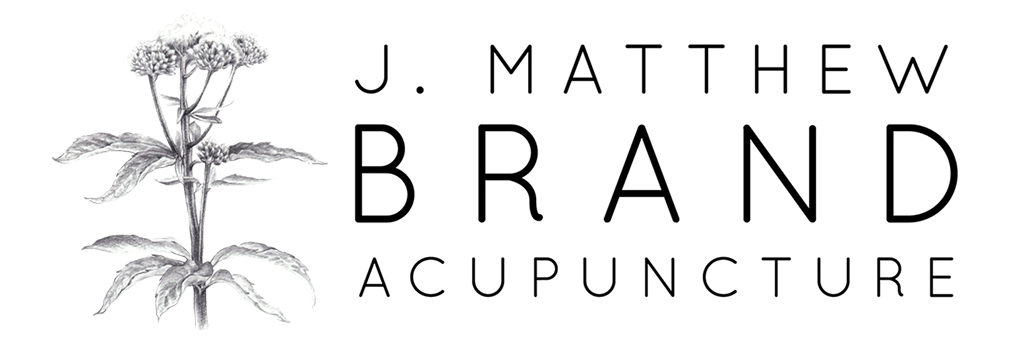These are the hypothetical questions that are posed for myself during and because of meditation:
-
Can you stand to be alone? Not just physically by yourself, but away from the noisy voices in your phone, on social media or on the web?
-
Can your stand to be alone with your thoughts?
-
Can you stand to be alone outside of/without your thoughts? And, if so, what is thinking then? Is it a linguistic process, grounded in tropes of communication? Or is there something primal, grounded in mere experience?
About twenty years ago, on the lower east side of Manhattan, I unintentionally started my journey down the path towards being an acupuncturist. Every Thursday evening I would make a call from the payphone on Second Avenue just above Houston, and then wait below a second-story window in a squatted building next to it for someone to toss me a foam football with a key to get inside. I would ascend to the martial arts studio of Frank Allen and spend the next three hours taking his series of classes, one after another, of Qigong, meditation, and Baguazhang.
Our meditation sessions developed in complexity over time. We started off with focusing on our breath, counting each inhalation and exhalation from 1 to 10, then back down to 1 again, so as not to lose that focus; we then moved on to trying to develop sensitivity in our bodies, starting off at the top of the head and moving down to the toes, like floors in a building, all while letting go of blockages that we noticed along the way; and finally we explored the nature of thought. While the first two sets of meditations allowed me to ground and expand my consciousness out to my corporeal being—and thereby create a union of mind and body—the last set did something very different. To paint the picture: we were instructed to imagine our thoughts as if they were balloons floating by; whenever one thought approached, we were to simply allow it to continue along its path; if we got caught up with one in particular, then you would either pull back or pop it to return to your space of observing thoughts come and go.
This required quite a bit of focus and calm to maintain, and in one of our sessions I found myself enter into a space completely separate from linguistic or pictorial thought. I had, in a sense, found a separation in my mind from what I normally experienced as thought. It was extremely quiet, still, dark—and free from any sense of self. This experience lasted perhaps a fraction of a second (or longer—who knows?), but what punctuated it was a juxtaposing thought that spoke very clearly: This is what death is like. I immediately felt a sense of terror and opened my eyes to the room and people around me, all sitting calmly in their respective meditations.
Our minds have the incredible ability to shape our experiences of the world both inside of and around us. Reflecting upon my profound experience with meditation, even back then, I realized that there was not one thing that occurred, but rather three: the experience itself, the interpretation of that experience, and the emotional response.
Arthur Schopenhauer once wrote: “Death is a sleep in which individuality is forgotten …. As soon as we enter into ourselves to attempt [to be completely conscious of ourselves], and wish for once to know ourselves fully by directing our knowledge inwards, we lose ourselves in a bottomless void; we find ourselves like a hollow glass globe, from the emptiness of which a voice speaks.” What his thinking explores is that there is no unified “Me” that thinks and does.
Tao Te Ching (Stephen Mitchell translation):
“Can you coax your mind from its wandering and keep to the original oneness? Can you let your body become supple as a newborn child’s? Can you cleanse your inner vision until you see nothing but the light? Can you love people and lead them without imposing your will? Can you deal with the most vital matters by letting events take their course? Can you step back from your own mind and thus understand all things?
“Giving birth and nourishing, having without possessing, acting with no expectations, leading and not trying to control: this is the supreme virtue.” (10)
“Empty your mind of all thoughts. Let your heart be at peace. Watch the turmoil of beings, but contemplate their return.
“Each separate being in the universe returns to the common source. Returning to the source is serenity.
“If you don’t realize the source, you stumble in confusion and sorrow. When you realize where you come from, you naturally become tolerant, disinterested, amused, kindhearted as a grandmother, dignified as a king. Immersed in the wonder of the Tao, you can deal with whatever life brings you, and when death comes, you are ready.” (16)
“Knowing others is intelligence; knowing yourself is true wisdom. Mastering others is strength; mastering yourself is true power.
“If you realize that you have enough,
you are truly rich.
If you stay in the center
and embrace death with your whole heart,
you will endure forever.” (33)
We may have an idea of what the world is and how it may or may not be an extension of our inner lives, but ultimately we will come against many walls that the world presents to us. These walls are either laws of nature, or wills of other people and/or creatures whose desires come into conflict with our own. What we are presented with in this case is either the choice to push back with all our might to shape the world more to our liking, or compromise and change ourselves and our reactions to that world.
